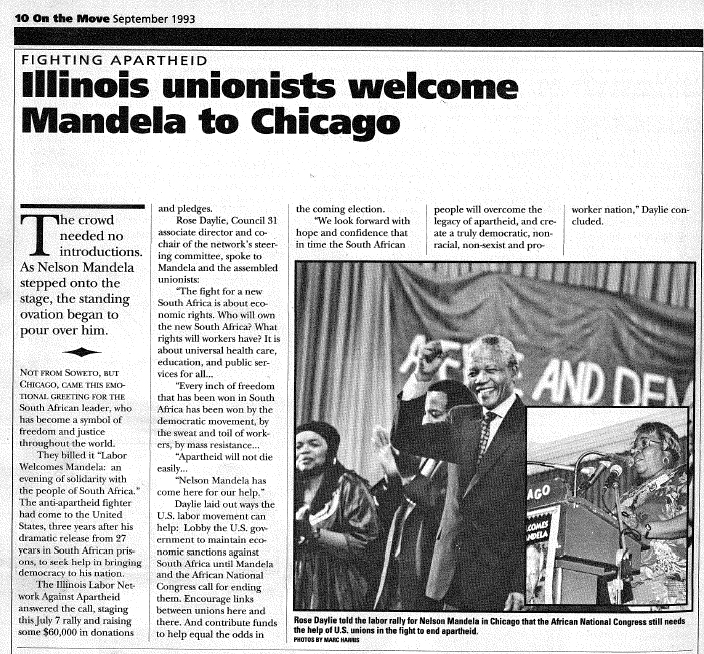When Mandela visited Chicago
In July 1993 -- just three years after Nelson Mandela's release from prison and a year before he was elected South Africa's first black president -- the local labor movement welcomed the revolutionary anti-apartheid leader to Chicago.
Here's how AFSCME Council 31's member newspaper On the Move covered the event:
The crowd needed no introductions. As Nelson Mandela stepped onto the stage, the standing ovation began to pour over him.
Not from Soweto, but from Chicago, came this emotional greeting for the South African leader, who has become a symbol of freedom and justice throughout the world.
They billed it "Labor Welcomes Mandela: An Evening Of Solidarity with the People of South Africa."
The event was a fundraiser, intended to "help Mandela bring democracy to his nation."
The Illinois Labor Network Against Apartheid answered the call, staging this July 7 rally and raising some $60,000 in donations and pledges.
Rose Daylie, Council 31 associate director and co-chair of the network's steering committee spoke to Mandela and the assembled unionists.
"The fight for a new South Africa is about economic rights. Who will own the new South Africa? What rights will workers have? It is about universal health care, education and public services for all. ...
"Every inch of freedom that has been won in South Africa has been won by the democratic movement, by the sweat and toil of workers, by mass resistance. ...
"Apartheid will not die easily. ...
"Nelson Mandela has come here for our help."
Daylie laid out ways the U.S. labor movement can help: Lobby the U.S. government to maintain economic sanctions against South Africa until Mandela and the African National Congress call for ending them. Encourage links between unions here and there. And contribute funds to help equal the odds in the coming election.
"We look forward with hope and confidence that in time the South African people will overcome the legacy of apartheid, and create a truly democratic, non-racial, non-sexist and pro-worker nation," Daylie concluded.




